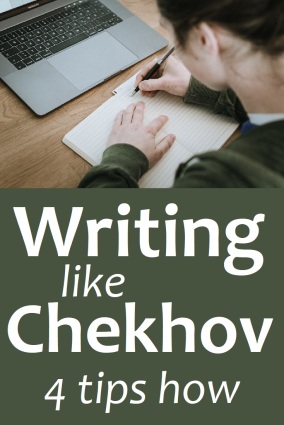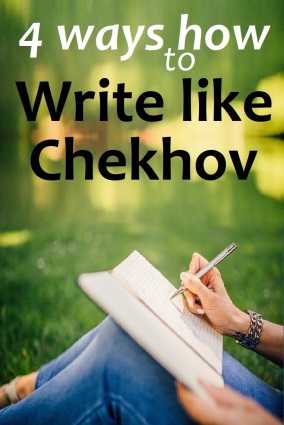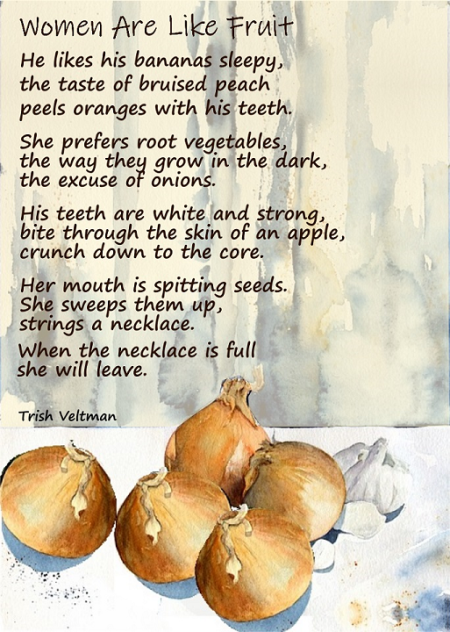 You know that feeling when your fingers are itching to pick up a pen, or rattle across the keyboard, pouring another creation onto the page? Ideas trip over themselves in your mind and words dance. You’ve carved out a generous slice of interruption-free time. Your favourite music plays in the background. You’ve plenty of water and, in case of a bad affliction of the munchies, you’re prepared with snacks; cashew nuts, Dairy Milk chocolate – if you’re on a health kick, carrot sticks.
You know that feeling when your fingers are itching to pick up a pen, or rattle across the keyboard, pouring another creation onto the page? Ideas trip over themselves in your mind and words dance. You’ve carved out a generous slice of interruption-free time. Your favourite music plays in the background. You’ve plenty of water and, in case of a bad affliction of the munchies, you’re prepared with snacks; cashew nuts, Dairy Milk chocolate – if you’re on a health kick, carrot sticks.
The blank page entices. You flex your writing muscles and step out into the realm of blank page. It feels great. You’re racing along, your mind is fizzing, your thoughts are fluent, emotive stream flowing onto the page. You capture everything you wanted to say, and bonus thoughts join the original ideas. You write with no hesitation, no awkward pauses searching for an elusive word, and the poem blooms.
First draft done, you take a break for a coffee. You know you’ll need to proofread and edit, to recraft a few lines here and there, and rethink a couple of weaker words. But you like to leave poems to marinate for a time. Nothing is ever pristine and polished the first time round, so you always make space for a redraft.
You drink your coffee, standing by the kitchen window. Outside, young waxeyes dart through the rose bush, and the sun lassoes their haze of feathers in a green corona. You frown, wondering if in the second verse you really managed to capture just how the sun casts its last light of the day. You remember Chekhov: “Don’t tell me the moon is shining, show me the glint of light on broken glass.”
 Before you file the poem in your redrafts folder, you read it again. Aloud, to capture the pace, flow and rhythm.
Before you file the poem in your redrafts folder, you read it again. Aloud, to capture the pace, flow and rhythm.
Your tongue trips and jams on awkward cadences. Your heart doesn’t feel what your mind promised. And you wonder if, when you were distracted with coffee and waxeyes, some goblin snuck in and substituted a different version of your work. This stream of words is thin, flat. It grasps at big ideas, but where is the elemental punch? It says what you think, but where is the invitation to readers to feel, to care? Where is the poem you thought you had written? Where is the verve? The light, the broken glass?
This experience will be familiar to most writers. And even if it’s not so extreme, the writing, marinating, rewriting process is essential to creativity. But how do you capture the ‘glint of light on broken glass’ in writing? Just writing the light of the moon glinted on the broken glass is an improvement on the moon shone but it’s not the most riveting description.
Well, here is how. You fill your writing toolbox with a full set of tools to enhance your craft. Here are four simple tools to start with:
Choose strong, active verbs
Words that convey specific detail give clarity to your writing. If you are describing somebody walking, think how you want the character to appear: purposeful, slow, angry, shy etc. Avoid adverbs. While adverbs do sometimes have their place, they tend to slow the writing down without adding anything substantive. There is almost always a more precise and evocative active word you can choose. Instead of she walked purposefully, try she strode to the door, she arrowed towards her car… Instead of he walked slowly, try he strolled along the street, he wandered from door to door, he ambled up the hill... Instead of they walked angrily, try they stomped out of the room, they stamped downstairs, they marched away... Instead of we walked timidly try we tiptoed out of the shop, we crept through the house, we drifted away from the crowd…
Create Imagery using the Senses
The five senses are powerful facets of our experience and using them in your writing will add another dimension, helping your readers engage with your poem/story etc at a visceral level as well as intellectual. Avoid obvious structures like he felt, she heard, but suggest in a subtle way using relevant imagery.
Sight – from an unrequited love poem set in a Danish winter: I’m standing on solid water and it sings / beneath my feet. Here, sky meets land / in a fold of wedding-dress cloth.
Sound – from a poem of loss and remembering: I wish my ears were conch shells / to hold the breeze of her voice.
Smell – from a poem about being stranded overnight on a beach: They arrived at noon, smelling / of city dust and petrol fumes
Touch – from a poem about people trying to make you change yourself: He chiselled me into shape / and chamoised me to shine.
Taste – from a poem about an old lady reconnecting with an old friend after 30 years: But her pasted mouth never savoured an alphabet / of sweet stuff. Honey. Milk chocolate. Plums. / What tickles her tongue is oniony and raw.
Construct Similes and Metaphors
Make good friends with these two. They are simple, effective ways of leading the reader by their intuition and their heart. They will enrich your writing by making descriptions more emphatic and vivid. Well-constructed and judiciously applied (overuse of anything will soon make writing appear forced), they convey a fuller, more satisfying picture than a straight description such as the crowd was small or it was a hot summer. Use them to enhance the mood, meaning and theme of your writing.
Simile – makes a comparison of one thing to another of a different kind. From a poem I wrote, referring to the shrinking number of people attending Armistice Day services: Yet on the 11th of the 11th , / the crowd at the cenotaph / is as thin as a poppy petal.
Avoid cliches. They make your writing dull and lazy, and lose the attention of your readers. 
Metaphor – suggests one thing as if it literally were another. From a poem about hunger stones appearing in parts of Europe due to the drought this summer: climate convulsions make summer / an abscess
Avoid mixed metaphors, e.g. in his mind’s eye, he heard the resonant notes of the piano fading away. This doesn’t make sense: mind’s eye suggests vision, not hearing and resonant means deep, clear sounds continuing to reverberate, not fading. Using a metaphor that contradicts itself is jarring.
Extended Metaphor – (sustained metaphor/conceit) metaphor developed over several lines, or an entire piece of writing. They allow a writer to develop a theme, digging deeper into similarities between the metaphor and the concept it compares.
Don’t forget, these tools are not just for poetic or literary writing. All writers need to capture the attention and keep the interest of readers. Showing the glint of light rather than announcing the moon is shining energises speeches, plays, articles etc. Next time you write, practice channeling Chekhov and see the difference.
Look out for more writing tips soon. Until then, here’s an old poem of mine using an extended metaphor:


We definitely need to write in a way that is captivating. With a nursing and science background, writing was not my forte’ and I have had to learn through trial and error and alot of rewording and thesaurus references to make articles that stand out above the rest. Great tips for self-improvement!
LikeLike
These are great tips! My biggest struggle is getting started. I have an idea, but I can’t quite see it written in my head. I always have to tell myself to just do it.
LikeLike
This is so useful especially for aspiring bloggers who are new to writing, thanks for sharing these tips
LikeLike
I love post like this because this is definitely useful for self- improvement. These are great tips and there’s always room for improvement.
LikeLike
great tips for everyone in the writing world. Thank you for sharing
LikeLike
Good writing tips. I always called an adverb a lazy tool of a weak mind. LOL
LikeLiked by 1 person
LOL! I find them less offensive in technical or instructional writing, but too many of them in fiction or poetry and other creative work make me cringe!
LikeLike
I love this, and am definitely sharing it with my students. We discuss using strong action verbs and doing vs. showing, but most just don’t follow through.
LikeLiked by 1 person
I think it’s something which becomes easier as their vocabulary expands.
LikeLike
The tip about avoiding at adverbs is really good. Is this something that I will keep in my mind going forward
LikeLiked by 1 person
Glad it’s a useful for you.
LikeLike
I’ll make sure I follow these ideas step by step.
LikeLike
Helpful post, bookmarked for future reference!
LikeLiked by 1 person
Glad it’s helpful for you
LikeLike
Much needed post for me. I will be looking forward to more writing tips from you. 😊
LikeLiked by 1 person
There will be more coming!
LikeLike
Wonderful ideas. Will keep them in mind when writing my next post and try and implement.
LikeLiked by 1 person
Thank you
LikeLike
what a great poem. you are a wonderful writer and i’m loving the tips you’ve shared!
LikeLiked by 1 person
Thank you
LikeLike
I loved your poem. these are great tidbits to help expand my writing which I admittedly struggle with at times. Simple but to the point.
LikeLiked by 1 person
Thank you Scott.
LikeLike
I really needed this today! In writing my memoir, I’ve been struggling with accurately conveying or justifying my emotions/thoughts with words. I have felt as if I was denying my audience the raw unedited truth yet I couldn’t figure out how to just say it. This was a great help! Thank you so very much!
LikeLiked by 1 person
You’re very welcome! I’ll be posting more tips soon so please follow me. Good luck with the memoir.
LikeLike
Great tips for expanding writing styles…Loved the poem…could relate to it from a previous relationship (a long time ago…thank goodness!)
LikeLiked by 1 person
Thank you, Dawn. I’ll be adding more writing tips posts soon, with more poems too. I’m glad the poem spoke to you – and even more pleased that you got out of that relationship.
LikeLike
A very interesting writeup…some very workable suggestions on making the blog more attractive to the reader..
Thank you
LikeLike
great tips there dear
thanks for sharing
LikeLiked by 1 person
Thank you. More to come sometime soon!
LikeLike
This reminded me of my favorite English professor in college!! He had such a beautiful style of writing and so many great tips that I loved writing back then. Thank you!!
LikeLiked by 1 person
Deploying all these soonest, in my writing. Thanks Trish, for sharing!
LikeLiked by 1 person
you’re welcome!
LikeLiked by 1 person